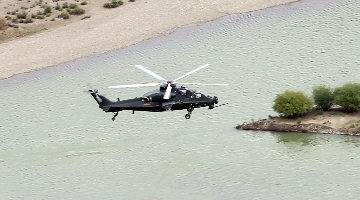By Zhao Guojun
Israel's security cabinet approved a ceasefire agreement between Israel and Hezbollah in Lebanon with a vote of 10 to 1, according to a statement issued by the Israeli Prime Minister's Office on the evening of November 26, local time. According to Israeli media reports, the agreement came into effect at 4 a.m. local time on November 27. Many analysts pointed out that although the agreement can bring temporary peace to both Israel and Lebanon, there are many uncertainties in its implementation. The dilemma in the Middle East remains difficult to resolve.
According to media reports, the ceasefire agreement between Israel and Hezbollah stipulates that Hezbollah and all Lebanese armed groups promise not to launch any attacks on Israel, and the Israeli armed forces cease strikes on targets in Lebanon. Both Lebanon and Israel retain the right to self-defense. Lebanon's Internal Security Forces (ISF) and the Lebanese Armed Forces (LAF) will be the only armed entities authorized to carry weapons or deploy forces in south Lebanon.
The current conflict between the Israel and Hezbollah is the result of a new round of spillover from the Israeli-Palestinian conflict. Since October 7 last year, Hezbollah has been exchanging fire with the Israeli army across the Lebanon-Israel border, providing support to the Islamic Resistance Movement (Hamas), which is fighting the Israeli forces in the Gaza Strip. In response, Israel has carried out airstrikes and shelling on Hezbollah. Since September this year, the conflict between Israel and Hezbollah has escalated sharply with intensified exchanges of fire. This has caused significant casualties, particularly Lebanese personnel.
The ceasefire agreement reached between Israel and Hezbollah is the result of the consideration of the interests of all parties. For Israel, there are three main considerations for accepting the ceasefire agreement. First, it aims to deal with the threat from Iran. Second, it intends to allow the troops to rest and replenish weapons reserves. Third, it attempts to cut off the connection between the enemy's north and south fronts and isolate Hamas. Once Hezbollah withdraws from the battlefield, Hamas will fall into a more isolated situation. For Hezbollah, the ceasefire can better preserve its strength. In addition, the Lebanese general election is coming soon. The longer Hezbollah engages in conflict with Israel, the greater the pressure it faces from Lebanese voters at home. For the US, Biden is eager to leave a so-called "political legacy" before leaving office in January next year. Securing a ceasefire at this time is a "diplomatic victory" for Biden and his administration.
The ceasefire agreement between Israel and Hezbollah can help ease tensions between the two sides to some extent. However, the core issue of the Middle East dilemma remains the Palestinian question. As long as the conflict in Gaza continues, achieving stability in the region will be very challenging. Only by promoting a comprehensive, just, and lasting resolution of the Palestinian question can peace be achieved in the Middle East.













